|
|
|
I just finished the audiobook for the autobiography of the legendary Physics Professor Richard Feynman. A fabulous listen, I have always been inspired by Feynman's contagious curiosity and desire to learn all things with a seemingly vicious intensity. I find myself also drawn towards a similar, addictive need, to ask questions and search for answers to things that others might find meaningless or not directly relate to vocation. Or perhaps, I'm trying to justify my late night YouTube deep dives. Either way...Feynman's spirit speaks to me and listening to his life story added an unexpected sense direction to my own midlife contemplations. Through a lens of science instruction, I was endlessly inspired by the way Feynman's own personal sense of curiosity naturally mingled into his instructional pedagogy. That is, it was clear that he deeply values the question asking process and made it clear throughout the book that questions must precede any form of direct instruction or delivery of equations. My own passion for translating individual curiosity about the world into formal lesson plans was my motivation for this TED talk I delivered in 2013. This passion for "Delayed Direct Instruction" is intrinsic to the inquiry learning cycle and its efficacy in helping students develop conceptual models for understanding is outlined in the literature. Click here for example of the plethora of research articles that underscore the importance of questions BEFORE lecture. The first 30 seconds of this clip from The Challenger Disaster, a film about Feynman's role in uncovering the the true cause of the Space Shuttle Challenger disaster, clearly demonstrates Feynman's inability to separate conceptual understanding and curiosity from instructional pedagogy. I could watch this clip all day long! Perhaps the below quote sums up the purpose of this post and its relationship to Feynman best. I read the quote as Feynman challenging educators of today to find a way, despite the myriad forms of resistance, to figure out ways to spark student curiosity in search of authentic, conceptual understanding. I think, however, that there isn't any solution to this problem of education other than to realize that the best teaching can be done only when there is a direct individual relationship between a student and a good teacher - a situation in which the student discusses the ideas, thinks about the things, and talks about the things. It's impossible to learn very much by simply sitting in a lecture, or even by simply doing problems that are assigned. But in our modern times we have so many students to teach that we have to try to find some substitute for the ideal. - Richard Feynman I recently stumbled across this podcast between Tim Ferris and Seth Godin. About midway through the episode Tim begins to grill Seth about the concept of Pedagogy, and how he goes about thinking about learning and instruction through a lens of. cognition and motivation.
To quote Seth: "We learn things by becoming momentarily incompetent" This one quote summarizes so beautifully everything I tried to say here, and on my best days, what I try and do in the classroom (pandemic or not). That is, to carefully walk the line between the delivery, and the withholding of information. To have faith in the empty spaces. To honor the mystery box. I encourage you all to listen to Tim and Seth's thoughtful conversation. Class: Freshman Biology Topic: The Cell Cycle 1. Engage (Hero is Called to Adventure) While entering the Zoom room this video was played on loop. Students then worked to solve this medical case study in randomized Zoom breakout rooms. (correct diagnosis = pancreatic cancer). The goal if this phase was to engage students in the process of cell division and create an information gap about cell division specifics that could be closed later in the learning cycle. 2. Explore (Hero is Challenged) Solution to case study was revealed using this video. Working individually, with Zoom room open for individual help as needed, students then worked through this POGIL activity on the Cell Cycle recording answers here. The goal of this phase was to provide specifics about cell division to add content and context to the case study. Slowly filling in the information gap. 3. Explain (Hero Meets the Mentor) Solutions to POGIL activity are provided here. Students engage in informal discussion in randomized Zoom breakout rooms followed by responsive classroom discussion about correct and incorrect answers are provided via whole-class Zoom. The goal of this phase is to "trick" students into engaging in direct instruction guided by their desire to fill the information gap. 4. Extend (Hero is Transformed) Students are placed into randomized Zoom breakout rooms and instructed to have a conversation based on this prompt without looking online for solutions: "Cancer of the heart tissue is very rare. Why do you think this is?" After returning to whole-class Zoom, this video is pushed out to students in chat to close the new information gap. 5. Evaluate (Hero Returns Home to be Judged) Students are challenged to create a presentation about a cancer of their choice. The presentation must include reference to, and diagrams of the cell cycle, specifically tumor suppressor and/or oncogene mutations that contribute. Students are also challenged to identify gaps in current treatment and propose their own innovative treatment. The goal of this phase is to force reflection on the content revealed in the learning cycle and promote inductive reasoning about cancer treatment.
Revisiting this post today while working with colleagues on inquiry lesson planning in the context of Blooms Taxonomy. Because I am finding this particular reflection and model useful, I felt it as worth sharing again. Enjoy!
The below images show the difference between the standard inquiry cycle I do during our face-to-face classroom time and how that cycle is being translated into 2 hour inquiry cycles during the online instruction. Additionally, below are active links from yesterday's lesson in my chemistry class for reference with respect to how the technology integrates into the process. I prefer using works like "Check In", etc., rather than "Explore" to keep students AWAY from the pedagogical. thought process in my head, and simply INTO the task in theirs.
|
Categories
All
Archives
March 2024
|
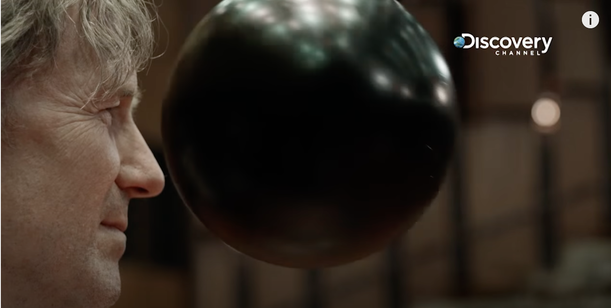
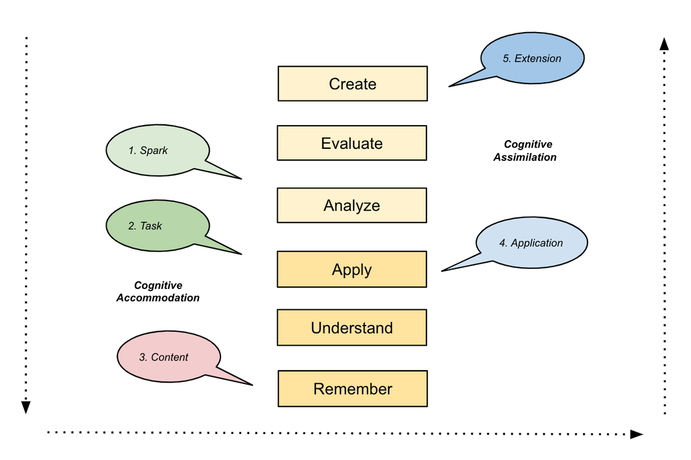
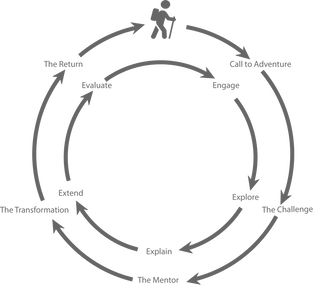
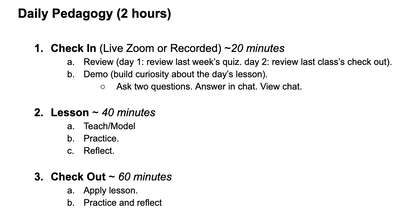
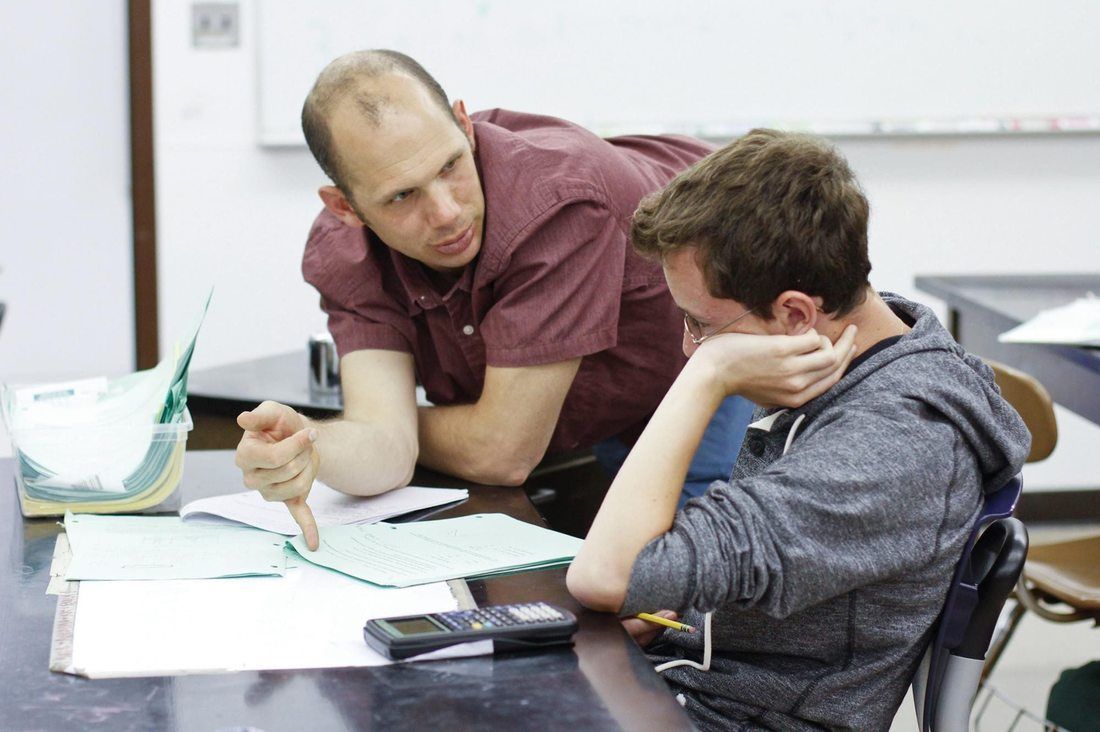
 RSS Feed
RSS Feed